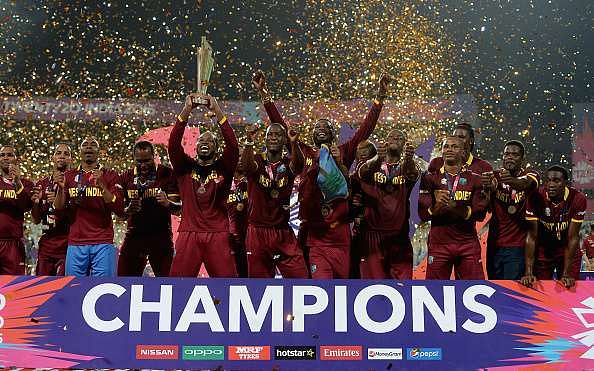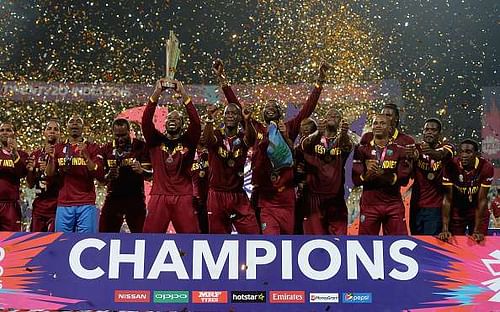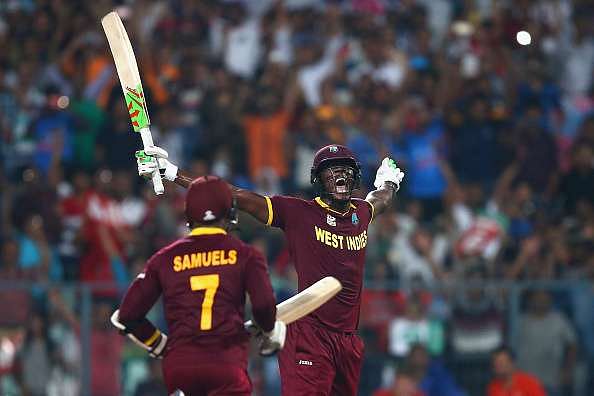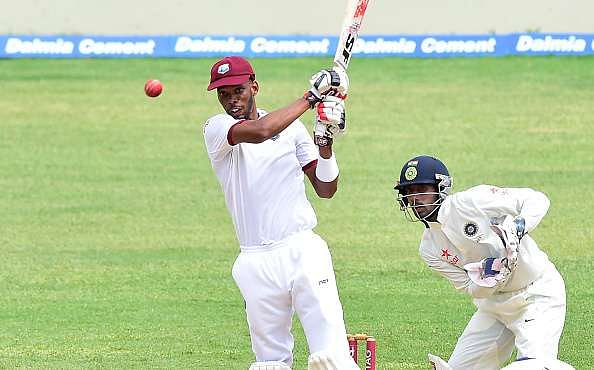
West Indies are not in terminal decline, they are dominating the brave new world

The line that West Indian cricket is in terminal decline is oft-parroted, despite being totally false. Such comments are the product of a cricket intelligentsia that continues to view the sport in the same defunct, archaic prisms, and ignores those providing glowing evidence to the contrary.
In reality, the Caribbean nations have embraced the brave new world in a way others are yet to. While detracts have pointed at a collection of an embarrassing defeat, West Indies have been scooping up ICC trophies.
This year alone, the men and women charmed their way to World Twenty20 glory in India, while a determined crop of youngsters joyfully claimed the Under 19 World Cup in Bangladesh. If that’s decline, one would love to see what success is.
West Indies’ T20 dominance mirrors their past Test success
Embracing T20 has been a thankless task due to cricket’s perpetual conservatism. But it is no longer the slap-bang-wallop circus it was when it debuted professionally in 2003. In 13 years it has evolved into a game rewarding athleticism, cunning and yes, brutality too – West Indies have all three in abundance.
Andre Russell and Kieron Pollard are among the most effective boundary patrollers around, Sunil Narine and Samuel Badree are spin twins trained in unforgiving suffocation, while Chris Gayle’s top-order explosiveness regularly wins games on its own, although he’s usually got back-up if needed.
They are dominating T20 in the way they ruled Tests four decades ago. Pollard and Narine weren’t even present at this year’s World T20, not that they were required – the former’s replacement was none other than the islands’ new hero, Barbadian Carlos Brathwaite.
Twenty-plus years of near-irrelevance in Tests has taken its toll on neutral and partisan fans alike - as the current series with India illustrates - and those pining for the return of a 1970s juggernaut will never be satisfied again. There will be no new fast-bowling titans threatening for sessions, days and weeks.
Nor will there be another impermeable powerhouse batting line-up that mercilessly drains the hope out of opponents’ souls, with the artistic genius of a Van Gogh masterpiece. And sorry, but there isn’t going to be another Viv either.
But that’s okay. Because there will be some West Indian kids right now mesmerised by Chris Gayle’s smiling power, others dazzled by Badree’s clever spin, and more still picking their jaws off the floor following Brathwaite’s stunning ‘sixathon’ in April.

However, there’s no denying the struggles they have faced and will carry on facing in Tests and even One-Day Internationals. They bowed out meekly in last year’s 50-over World Cup, and will be absent from the Champions Trophy – a tournament they won in 2004 – for the first time, after losing their spot to Bangladesh.
Sport’s equivalent to a brain drain also plays a factor. As much as cricket is about pride, for the players it’s a job. Pay disputes have been pertinent issues for far too long - they even formed a murky backdrop during West Indies’ T20 celebrations in Kolkata.
Darren Sammy’s scathing critique of the West Indies Cricket Board (WICB) was lauded and blasted. Yet these problems accurately showcase cricket’s T20-Test dilemma.
No one can blame those who choose the riches of T20 freelancing – time as a prized commodity is short. The WICB must realise how to best harness their talent. Perhaps carving out two West Indian directions is the solution – one for Tests, one for T20, with an ODI side fitting in somewhere in the middle.
Unity across the formats isn’t essential – they both demand different skill sets. For those who wish to pursue global T20 ambitions, assign them special T20 contracts, pay them what they deserve for their unrivalled achievements and select them only for that format. Ultimately, T20 is bringing the glory right now, so it’s only logical to drive for a good working relationship with the T20 squad.
But, while it’s admittedly far from rosy, it would be a disservice to the Maroons to paint them an entirely bleak Test future. The emergence of keen, gritty youth does give reason for cautious optimism. Look no further than the newest kid on the block, Roston Chase.
His stunning rearguard century and five-wicket haul against India helped West Indies grab an improbable draw from the jaws of defeat in Jamaica.
Meanwhile, gutsy all-rounder and captain Jason Holder possesses the leadership qualities to get the most out of his players like Sammy was able to in T20. Expectation management will be key, but if a tight-knit group can stick together and apply themselves, a few bricks can be put back in the wall over the next few years.
West Indies understand the brave new world

Test cricket’s days as the biggest breadwinner are long gone, but the recent thrills offered in the ongoing England-Pakistan, Sri Lanka-Australia and West Indies-India series show the format is thriving in its own way. Like a Shivnarine Chanderpaul innings, Tests will be played forever, have their brilliance appreciated, but come with the caveat of having their limitations recognised.
They will continue to be the sport’s guardian while its offspring go out in search of new fans. To the wider audience, three-hour thrills are, with notable exceptions, more appealing than five-day sagas in this fast-paced world. Cricket has had no choice but to mould itself to fit in with the 21st-century sport, which demands instant gratification.
Without sufficient tinkering, it would have been left behind.
And thank goodness for it. Because the product of such tinkering is this West Indies side – the flair and fire remain, it’s just been supersized. Pride: check. Performance: check. Partying: check. People are falling in love with this team for the same reasons now that they did 40 years ago, and that love is uniquely universal.
No team could have captivated Eden Gardens like they did against England in that T20 final, after snatching away India and Virat Kohli’s apparent destiny just four days earlier in Mumbai.
West Indies haven’t fallen off the cliff; they are riding the latest wave with more style than the rest of their peers combined – just like they always have. Ignore the naysayers and consider the overall picture. Do that and you’ll realise the future of Caribbean cricket is as bright as the sun that beams down on it.